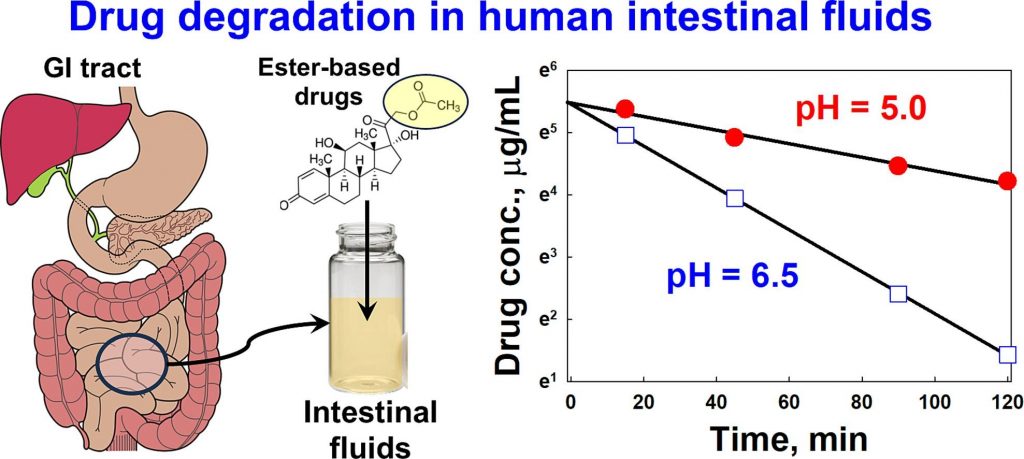Enzymatic prodrug degradation in the fasted and fed small intestine: In vitro studies and interindividual variability in human aspirates

The aim of the current study was (1) to develop an automation-based protocol for in vitro assessment of enzymatic drug stability at fasted- and fed-state intestinal conditions, (2) to characterize the inter-individual variability of drug degradation in fasted- and fed-state human intestinal fluids, and (3) to compare the obtained in vitro results to drug degradation in human intestinal fluids by taking variability into account. In human intestinal fluids, drug degradation displayed large inter-individual variability, with coefficients of variance generally ranging between 30 and 70 %. The effect of food on the inter-individual variability was highly dependent on the type of drug. The increase of pH in the range between 5.0 and 7.0 significantly accelerated the degradation rate of the studied drugs both in the in vitro and ex vivo experiments. In contrast, the increase of bile salt and phospholipid concentrations in the in vitro screen decreased strongly the degradation rate of the hydrophobic drugs. The developed automated in vitro screen mimicked relatively well the ex vivo degradation of all drugs in the fasted state, whereas in the fed state the degradation of only one of the drugs was adequately reproduced.

